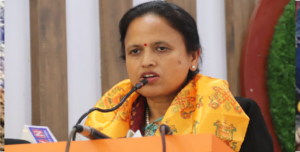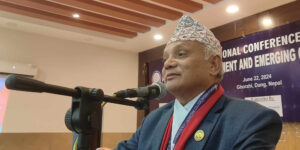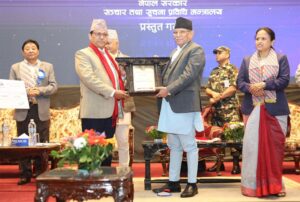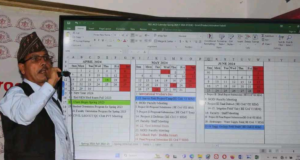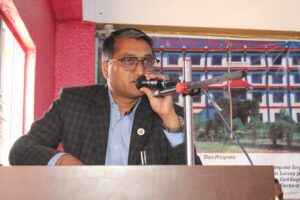Educationpatra, Kathnamdu. In Kathmandu, the education sector has been a top priority for Balendra Shah, the elected head of the Kathmandu Metropolitan City. Recognizing the need for improvement, Mayor Shah took decisive action by appointing an education expert as his advisor. Reshu Aryal, the president of Teach for Nepal organization and an esteemed educationist, was chosen for this significant role.
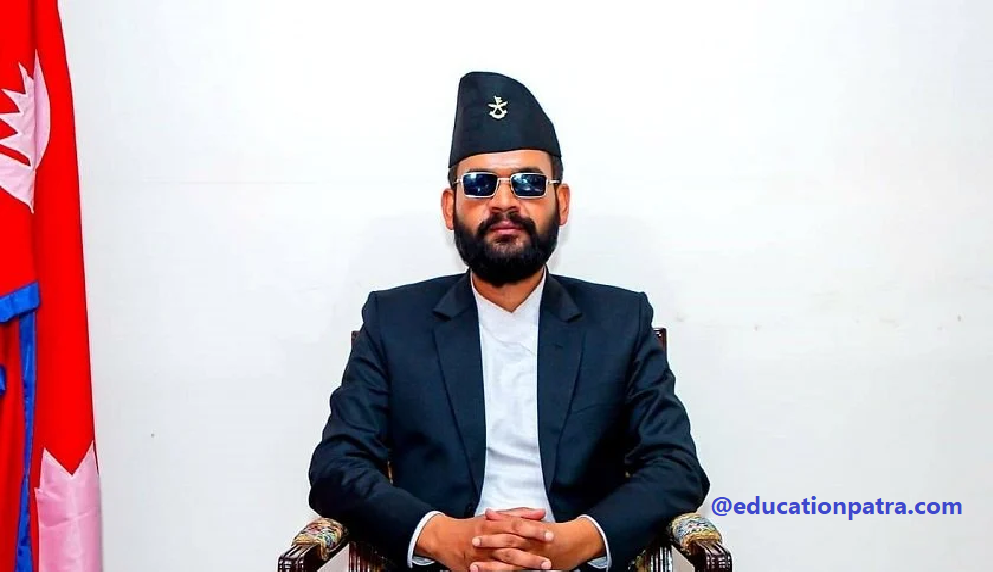
Aryal’s appointment as the education advisor was confirmed during the executive meeting held in August. She provided valuable suggestions and advice on various subjects, and her activism spurred the metropolis to initiate numerous endeavors aimed at enhancing education. However, Aryal’s tenure as an education consultant was short-lived as she recently resigned due to personal reasons, and her resignation has been accepted by the metropolis.
An official from the mayor’s secretariat acknowledged that the remarkable improvements witnessed in the education sector were implemented based on the recommendations put forth by the education consultant. Mayor Shah has demonstrated his commitment to continue advancing these reform initiatives, and as a result, positive outcomes are starting to emerge in the education sector.
The progress achieved in education is not solely attributed to Mayor Shah but also stems from the unified efforts of Deputy Mayor Sunita Dangol, Chief Administrative Officer, the Education Department, Ward Presidents, and the entire metropolis.
Sitaram Koirala, the education officer of the education department, highlighted that the entire metropolis is devoted to enhancing the education and health sectors. He mentioned that Mayor Shah dedicates two hours every Friday to discuss education improvement with the employees.
The metropolis has increased the budget allocated to the education sector from the new academic session onwards. Reforms in the education sector have been implemented in accordance with both metropolis and federal government laws.
These reforms include:
# Introduction of a life skills program in education.
# Emphasis on extracurricular activities through ‘Book Free Friday.’
# Enforcement of mandatory scholarships by private schools.
# Over 13,000 students benefiting from scholarships.
# Resolution of student-led lockdown by city police.
# Strict actions against schools closing without valid reasons.
# Regulation of excessive fees in class 11.
# Salary regulations for private school teachers and staff.
# Additionally, the metropolis has launched a life skills program focusing on classes 9-12 to equip students with essential skills for their future. Every Friday, ‘Book Free Friday’ encourages students to participate in extracurricular activities by attending school without carrying copybooks and bags.
Moreover, the metropolis has taken stringent measures to ensure private schools provide scholarships. A mandatory 10% scholarship requirement has been imposed, and fines have been levied on schools failing to comply or submit scholarship details. Out of the 504 private schools in Kathmandu metropolis, 465 schools have submitted their scholarship details, marking a historic achievement.
The metropolis firmly upholds schools as peaceful zones, disallowing strikes. As a result, the city police intervened to unlock schools where student organizations had imposed locks in Sanskrit Secondary School, Vrihaspati Secondary School, and Eulens School with various demands.
Furthermore, the metropolis intends to regulate fees in class 11 to ensure a fair and justified fee structure. Institutional schools conducting classes 11-12 have been requested to propose their fee structure by the end of June, following the decision of the school management committee.
Recently, the metropolis has also shown concern for the salaries of private school teachers. In response to complaints of significantly lower salaries compared to public school teachers, measures are being explored to address this issue.
Kathmandu Metropolitan City has taken a progressive step by introducing computer language coding classes in 14 schools. In collaboration with Digital and Beyond, students from classes 4 to 9 are being taught coding, emphasizing the importance of digital skills for the future.




